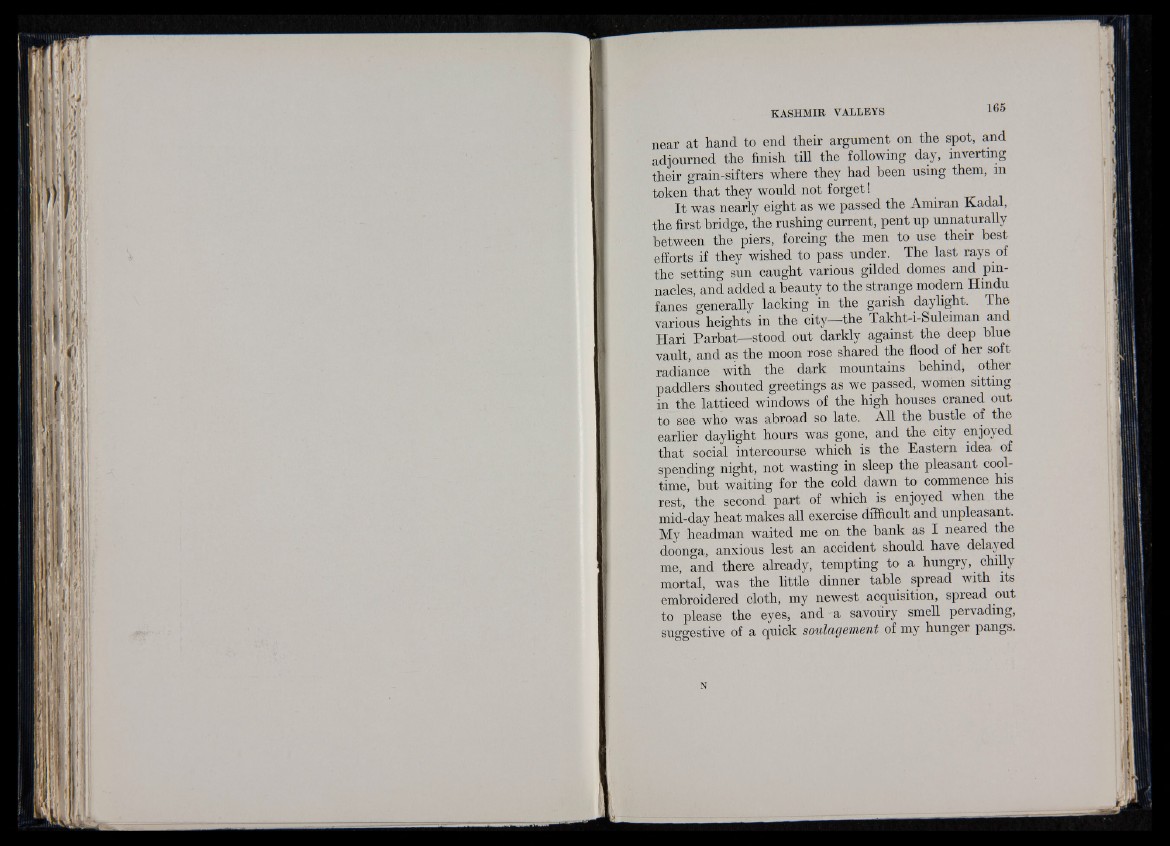
near at hand to end their argument on the spot, and
adjourned the finish till the following day, inverting
their grain-sifters where they had been using them, in
token that they would not forget!
I t was nearly eight as we passed the Amiran Kadal,
the first bridge, the rushing current, pent up unnaturally
between the piers, forcing the men to use their best
efforts if they wished to pass under. The last rays of
the setting sun caught various gilded domes and pinnacles,
and added a beauty to the strange modem Hindu
fanes generally lacking in the garish daylight. The
various heights in the city—the Takht-i-Suleiman and
Hari Parbat—stood out darkly against the deep blue
vault, and as the moon rose shared the flood of her soft
radiance with the dark mountains behind, other
paddlers shouted greetings as we passed, women sitting
in the latticed windows of the high houses craned out
to see who was abroad so late. All the bustle of the
earlier daylight hours was gone, and the city enjoyed
that social intercourse which is the Eastern idea of
spending night, not wasting in sleep the pleasant cooltime,'
but waiting for the cold dawn to- commence his
rest, the second part of which is enjoyed when the
mid-day heat makes all exercise difficult and unpleasant.
My headman waited me on the bank as I neared the
doonga, anxious lest an accident should have delayed
me, and there already, tempting to a hungry, chilly
mortal, was the little dinner table spread with its
embroidered cloth, my newest acquisition, spread out
to please the eyes, and a savoury smell pervading,
suggestive of a quick soulagewent of my hunger pangs.